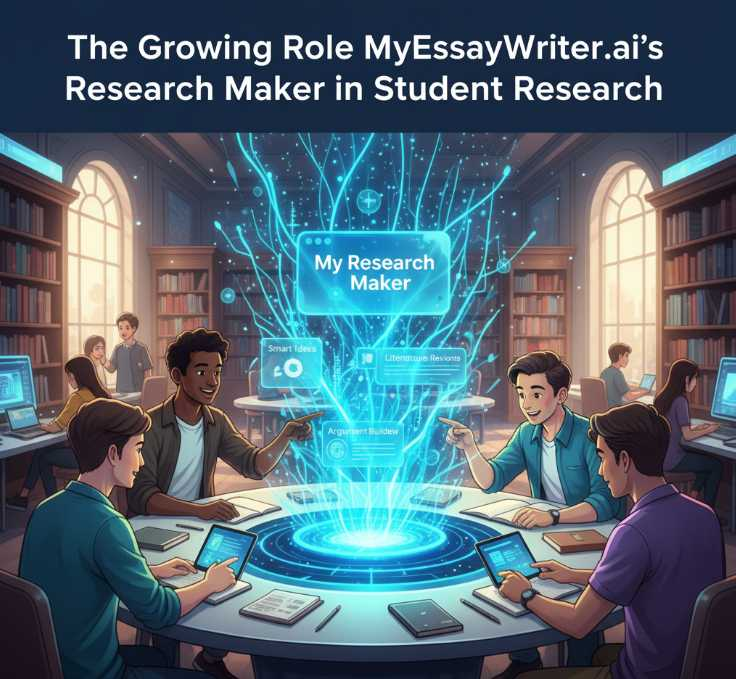From smart cities to generative AI, digital innovation is rewriting the rules of how we live, learn, and work. The convergence of artificial intelligence, data science, and connected devices is accelerating breakthroughs in every industry. Below are four key areas where these changes are unfolding and how advanced AI platforms can support creative and academic work along the way.
Smart Research: AI for Idea Generation
Innovation starts with strong ideas. In sectors like renewable energy, biotech, and cybersecurity, researchers must move quickly from concept to actionable proposals. AI-powered brainstorming is becoming a crucial ally.
A good example is the Research Title Generator, which uses natural-language processing to scan trends and instantly suggest relevant, innovative topics. Whether a graduate student is exploring quantum encryption or an entrepreneur is drafting a white paper on blockchain supply chains, a tool like this can surface cross-disciplinary angles that traditional methods might miss.
The same approach is helping corporate R&D teams map out future projects. Instead of weeks of manual research, teams can input key phrases and receive a list of thought-provoking possibilities, an essential advantage in industries where the first to market often wins.
Building Digital Solutions Faster
Once a concept is defined, the next challenge is building a clear, structured plan. Agile development and design thinking thrive on speed, and AI can help here as well.
The AI Research Paper Writer demonstrates how a research maker can organize complex material into logical outlines and draft sections that developers or analysts can refine. While originally designed for academic writing, the same principles apply to tech proposals, policy documents, or detailed implementation roadmaps.
Digital innovators are adopting similar AI-driven systems to generate technical documentation, prepare funding pitches, and communicate prototypes to stakeholders, freeing engineers and designers to focus on the real breakthroughs.

Ensuring Trust and Integrity
As AI becomes integral to innovation, maintaining authenticity and data integrity is critical. Misinformation or plagiarized content can undermine even the most exciting project.
An AI Content Detector offers a safeguard. By scanning for duplication and identifying machine-generated passages, it protects intellectual property and ensures that reports, patents, or marketing materials remain original.
This is vital in fast-moving industries like fintech or health tech, where credibility determines investment and regulatory approval. Startups and research teams use these tools as part of their quality-assurance pipeline, reinforcing trust in their innovations.
Integrated AI Platforms for the Digital Economy
Beyond individual tools, integrated platforms are redefining efficiency. As highlighted in Modern essay writing tools to boost efficiency now combine ideation, drafting, and originality checks in a single workspace.
While students use them for academic papers, entrepreneurs leverage similar systems to create market analyses, investor briefs, and policy recommendations without toggling between apps. These all-in-one solutions exemplify the broader trend of digital innovation technology that saves time, reduces errors, and allows humans to focus on strategic decisions rather than repetitive tasks.
Conclusion
Digital innovation is not just about gadgets or faster code; it’s about efficiency and creativity across every discipline. From AI-powered research generators to integrated content platforms, intelligent tools shorten the distance between idea and execution. Writers, researchers, and tech entrepreneurs alike can benefit from exploring advanced writing tools to boost efficiency, but the lesson extends further: these AI systems illustrate how automation and human ingenuity can work together. By embracing trustworthy, creative digital technologies, industries can accelerate discovery, improve accuracy, and keep human insight at the heart of progress.
Read other helpful blogs
Smarter Research,Better Writing
How AI is Rewriting The Future of Research and Writing?
Rethinking Learning in the AI Age
















